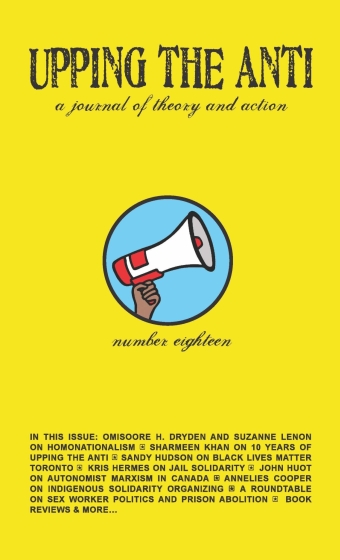A Critical Note on Ruiz and Ross’ “Energizing the Climate Movement”
Dear UTA,
In “Energizing the Climate Movement,” Sedge Ruiz and Alexander Reid Ross offer a critique of the idea that the mass adoption of green technologies will be sufficient to avert the climate crisis. They note that green technologies on their own cannot sustain existing levels of energy use. A significant reduction in total energy use will be required if we are to wean ourselves off of fossil fuels. The critique of green capitalism is a worthwhile one. Yet, Ruiz and Ross’ article is marred by lack of clarity, and the localist solution they offer for the climate crisis is far from adequate.
The lack of clarity is captured well in the conceptual confusion of the following passage:
As Marx argued convincingly, the surplus value accumulated by capitalists through the transferring of use-value into exchange-value relies on cycles of overproduction and waste that lead to eventual systemic collapse. These economies, adapted to consumerism through planned obsolescence and “creative destruction,” rise and fall based on a binary opposition between production and consumption, which stimulates a reactionary
populist producerism that only drives the machine faster. (77)
An excessively large number of concepts (surplus value, accumulation, use-value, exchange-value, overproduction, planned obsolescence, creative destruction) are put together to create a mess that I can see no way of disentangling. It doesn’t help, of course, that puzzling phrases like “reactionary populist producerism” are thrown into the mix.
Contrary to what Ruiz and Ross seem to think, Marx did not predict “eventual systemic collapse.” In any case, there is little reason to believe that capitalism is breaking down. Rather than being a burden on the system, increasing amounts of ecological destruction could instead help to secure capitalism’s reign. “Creative destruction,” a tendency that Ruiz and Ross make note of, is not a sign of the system’s failure. It’s an essential part of capitalism’s functioning, and it will only be given a boost as the environmental crisis continues to develop, with the forces of nature acting as the destructive agents.
The authors follow the above jumble of concepts with a prescription:
The only revolutionary option on the Left is not to stress
seizing the means whereby we can reproduce the system, but by
transforming the relations of production so that humanity might
have a beneficial relationship with the earth. (77)
How can we transform the relations of production if we leave the means of production in the hands of the capitalist class? Ruiz and Ross seem to suggest that capitalism (which they unhelpfully equate with “industrial power”) can be overcome by engaging in direct action and other forms of local activism. It would seem that blocking pipeline projects, supporting small-scale agriculture, and reshaping urban space are sufficient for transforming the relations of production that are reproduced on a global scale. Such things as the nationalization of banks or stopping the privatization of the provincially-owned Hydro One apparently don’t need to be on our agenda.
It would be unfair to place blame for the shortcomings of the Ruiz and Ross article on the authors alone. Conceptual confusion and an uncritical attachment to localism can both be commonly found within the North American activist Left. It seems that our movements nurture lack of clarity and a perverse scepticism of politics beyond the local sphere.
The Left happens to be in a great amount of disarray. We are in no position to mobilize to push for substantive change. The fact that we can do little more than mount haphazardly put together local protests is a testament to our disarray. Rather than soberly taking stock of the state of disorganization on the Left, localists want us to celebrate it. Our lack of commitment to clarity no doubt helps us in pretending that a weakness is a strength.
No amount of direct action, and no amount of locally grown tomatoes, will get us anywhere if we don’t obtain clarity of thought as well as an appreciation for the scale of the response that today’s problems require.
In solidarity,
Umair Muhammad
Toronto, ON

